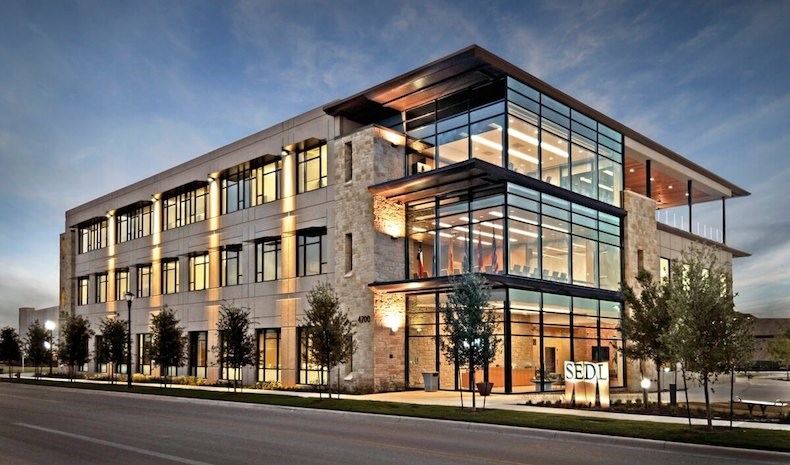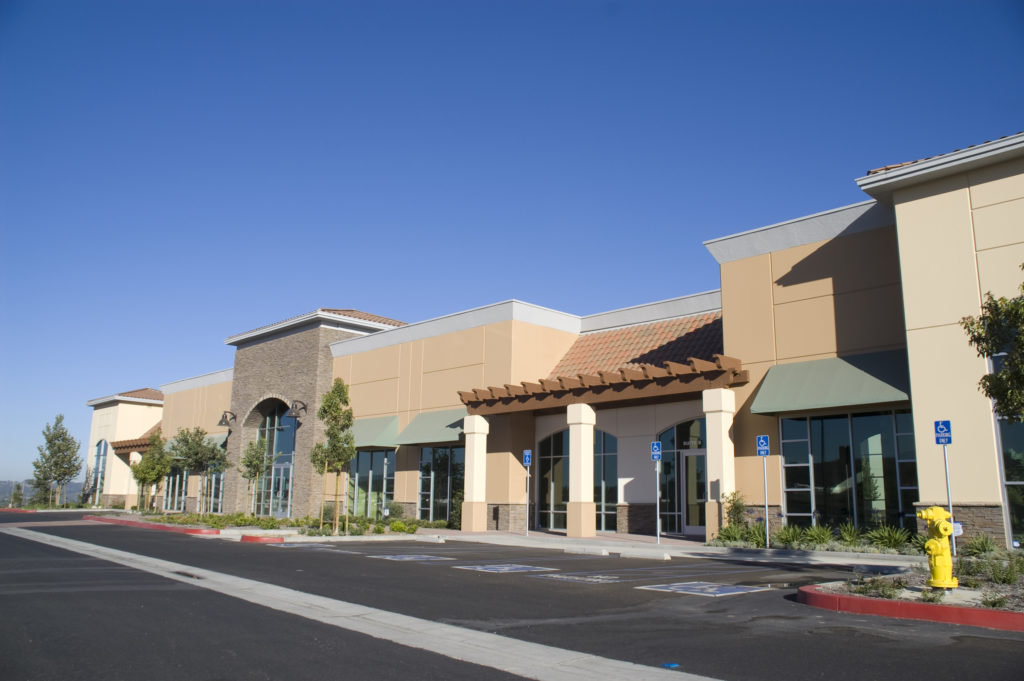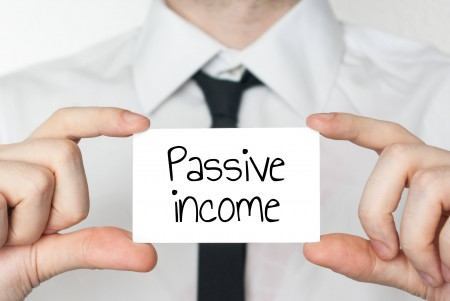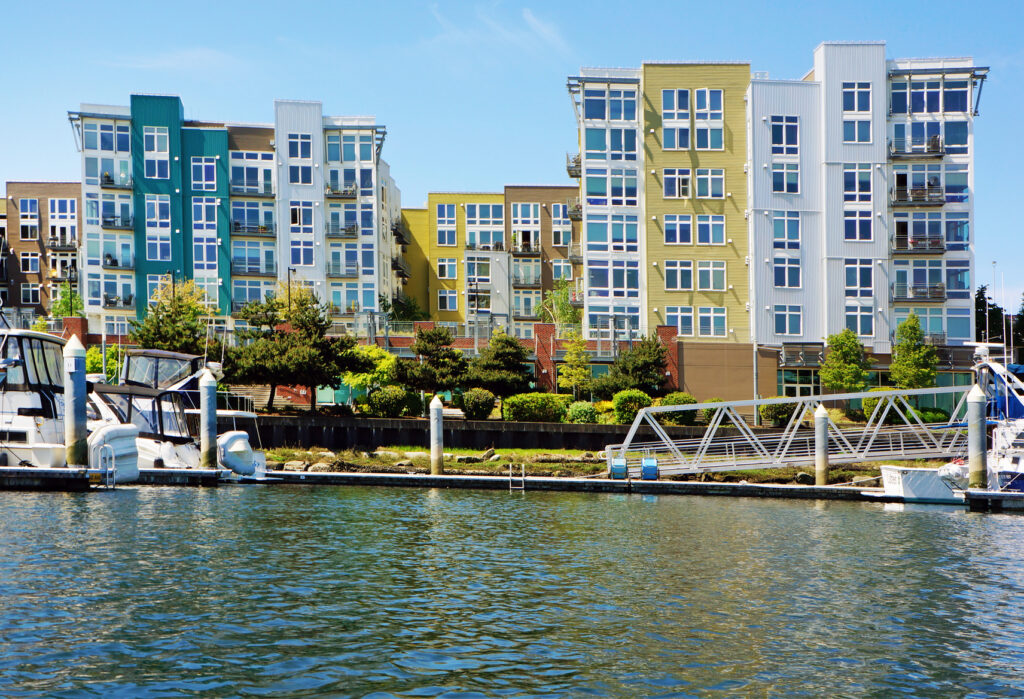Collectively we need to prepare to live much longer than our parent’s generation as the average life expectancy in the United States keeps growing. This means the amount of money we need for retirement keeps getting greater. Additionally, healthcare costs also continue to rise the older you get especially once you get into your sixties and beyond.
These above facts are not presently being announced proudly by any government agency, nor are any private institutions warning the public. Unfortunately, most Americans are either not aware or purposefully not preparing properly for their retirement years because they can’t afford it. The situation appears to be getting worse each passing year as we have an aging population and will soon be facing a major problem country wide when the peak of baby boomers is done working.
There are many ways to properly prepare and be capable of surviving into our later years – you should seriously consider commercial real estate as one of those investment vehicles.

Financial Self-Determination
We think it is safe to say most people desire a secure and stable financial situation for themselves. No one really wants to rely on the welfare system or government dole to pay for their existence at any time and specifically not in retirement. Moreover, most people do not want to burden their children with their financial needs as well. If you have children, you probably like spending as much time with them as you can, but that time would be best spent at your discretion. Having to live with your kids because you don’t have the financial resources to live on your own isn’t how most people want to spend their retirement years. Financial dependence means depending on someone else to cover your daily living expenses, and importantly it also means giving up your freedoms, privacy, and your independence to move around as you see fit.
Secure Financial Future
Assuming you are on your way to financial independence your goal should be to achieve that into retirement without having to work past age 65 or so. Unfortunately, many people are today working into their seventies out of sheer necessity and this trend is getting more burdensome on society. Once financial stability is achieved the desire is to have the same secure and stable financial situation for the duration of their retirement. This does not include stuffing a mattress or cookie jar with cash but having multiple revenue streams and an ample amount of cash reserves in the bank.

Saving Money in Retirement
When we think about and actually save money during our working years to prepare for retirement, we typically don’t envision spending our paychecks into an empty bank account. A new concept to consider is saving money in retirement, which can take on different forms. It can mean working a part-time job or starting a small business to generate an income stream to add to a savings account. It can also mean making smart choices to earn money from investments like commercial real estate or other income producing assets. No matter what your approach is planning now is paramount to a successful retirement and future.
Traditional vs. Modern Savings for Employees
The traditional way people secured their financial lifestyle was to rely on their company to pay them a stipend into retirement – that coupled with social security was a standard way many people survived during retirement. As unique as that might sound to millennials or kids today, those type benefits don’t really exist in the private sector anymore as most companies have resorted to helping their employees save for themselves using 401Ks. This new method of self-funding retirement helps relieve the company of that burden.

Saving money in a well planned retirement account and strategy is also taking advantage of the power and miracle of tax-deferred compounding interest. Your hard-earned money will presumably grow faster because earnings that could have been taxed by the government get reinvested and earn even more. In addition, if you can afford additional savings, budget additional money for medical savings accounts, and let the power of compounding interest yield considerable savings in after tax strategies. Importantly, waiting to start your long-term savings program can have a major impact on your retirement saving outcome because the most vital component of compound interest is time.
Self-Employed Savings
Self-employed people have long been relegated to saving for themselves using, for example, tax deferred SEPIRAs (which allow people to save money on taxes during working years, and defer taxes on those monies when in retirement, presumably when their tax rate is lower) or merely placing money away in brokerage accounts. Additionally, a more recent product is available for self-employed people called the ROTH IRA – which is a way to save post tax dollars without having to pay taxes on any accumulated interest forever. In any case it is vitally important that people, whether privately employed or self-employed consider diversifying their retirement portfolios with stocks, bonds, commodities, precious metals, and of course commercial real estate.

Diversifying Your Retirement Portfolio with Real Estate
Yes, that’s correct, in order to properly diversify one’s retirement portfolio real estate should be a component, and this does not necessarily include your primary residence because most rational investors consider a primary residence a liability and not an asset. A home that you live in is a liability because it does not produce income for you, it merely is an expense. This does not really apply to some fortunate people who live in states that have enjoyed significant consistent equity gains like California.
Four Practical Reasons Investment Real Estate Should be in Your Portfolio
Rental Income
Rental income is any payment an investor or landlord receives for the use or occupation of real property. Tenants pay rent to satisfy a lease obligation. Commercial investment property is designed to produce rental income. As the investment property matures, as the rental property cycle matures, rental income increases improving the value of the investment property and the owner’s bottom line. Rental income is used to calculate the owner’s return on investment and also is used to the calculate the value of the commercial property. All else being equal, and if everything works out the rental income increase, the return-on-investment increases, and the value of the asset increases.

Legal Tax Shelters
A legal tax shelter is any recognized strategy you plan and endeavor to reduce the amount of yearly income taxes you owe. Even though there may be an initial negative reaction to the concept of legal tax shelters there are, give or take, ten or so legal tax shelters available for the consuming public to take advantage of.
Medical Savings Accounts, Charitable Remainder Trusts, Life Insurance and Annuities, Workplace Benefits, College Savings Plans, Child Tax Credit, Angel Investor Statutes, IRA Tax Deferred Accounts, Mortgage Interest, Depreciation of Real Estate are some commonly known and legal tax shelters.
Real estate offers a couple of robust tax shelters, mortgage interest deductions and depreciation of constructed buildings. Although mortgage interest deductions have been recently reduced (Tax Cuts & Jobs Act of 2017) they still have the powerful effect and provide incentive to purchase real estate. Investment property constructed buildings are allowed to be depreciated over 27.5 years. Simply stated, the value of the investment property building is divided by 27.5 provides a quotient which is a paper tax deduction each year for 27.5 years. This is also a powerful tax tool which is one of the primary driving factors for investors of commercial real estate.
Debt Destruction
The act or process of paying off one’s debt is also known as debt destruction. When you are paying down your mortgage for your primary residence it is unavoidable. When a tenant pays off an investor’s mortgage the resulting debt destruction is a welcome byproduct of the investment as with each passing payment the investor’s equity grows. Debt destruction is one of the 4 primary ways an investment property is a better wealth vehicle than simply owning equities or bonds.

Equity Growth
Equity is defined as the value of an asset minus the debt obligated against that asset. Notwithstanding several periods of downturns in real estate markets throughout our brief history, real estate values generally trend upward at a pace typically beating inflation. Some markets, like Silicon Valley, New York City, San Francisco have extended periods of sustained double-digit growth attracting real estate investors from all over the world. As real estate values trend upwards so does an investor’s equity in that asset. Equity growth is one of key driving factors for commercial real estate investors – as the equity grows in your investment so do opportunities to level up and purchase improved properties or borrow against the asset tax free. One of the key concepts of investing in commercial real estate is that your tenants are helping pay off the mortgage, pay for the operations of the building, and grow your equity to improve your wealth position.

A Real Profitable Business That Works Without You
A business is defined as a profitable, commercial enterprise that runs itself without your presence. Owning a commercial investment property that is professionally managed meets the definition of a business. For example, if you own a McDonald’s Hamburger franchise, a 7/11 convenience store, a One-Hour Martinizing Dry Cleaners, a self-serve gas station, or a car wash – each of which were fully staffed with employees, a general manager, and did not require your presence for the day-to-day operations, that would be a textbook definition of a profitable, commercial enterprise that runs itself. An owner is not concerned about the day-to-day operations because that is the general manager’s responsibility. An owner is only concerned about the profits – and that should be solely the focus for your rental/investment properties.
Commercial Real Estate Defined
Commercial real estate (CRE) is real property that is used for business-related purposes or to provide a workspace rather than as a living space. Almost always commercial real estate is leased to commercial tenants to conduct income-generating activities for businesses, or non-profits to run their operations.
Commercial real estate includes several categories, such as retail shops, office space, hotels and resorts, strip malls, shopping centers, restaurants, warehouses, industrial buildings, residential apartments, and healthcare facilities among other things.
Some define commercial real estate as any realty that is bigger than one residential rental unit on one lot. For example, a duplex may be considered commercial property. Typically, one to four residential rental units is financed with conventional residential financing, and anything greater than four units requires commercial financing.
Residential and commercial investment properties are similar but not always the same. Residential real properties typically include structures reserved for humans to live/reside and not for commercial or industrial use. Commercial real estate, as implied, is used in commerce for business purposes. Multi-unit residential rental properties that serve as residences for tenants are classified as commercial activity for the landlord – typically five units or greater is considered commercial investment property. Single-family homes, duplexes, triplexes, four-plexes are still considered residential for lending purposes. Five units and above, small, medium, and large apartment complexes are considered commercial for lending purposes. Different lending rules, procedures, appraisals, etc. apply to residential versus commercial residential properties.

Commercial Property as an Investment
Most sophisticated real estate investors believe that commercial property is a wonderful way to generate and build multi-generational wealth. Notwithstanding inflation and the fact that real estate values trend upwards, one of the primary reasons commercial properties is such a robust investment vehicle is because of leverage. Properly executed leverage allows one to use a small number of resources and produces robust returns. Because commercial properties are usually bigger, more expensive than their residential counterparts, the accompanying returns over time are much greater. Taking advantage of all the tax rules, statutes, and guidelines that favor real estate investment is just one facet of commercial real estate investing and should be part of your family’s estate plan.
Once you make a commitment to purchase commercial property that is where the fun starts. Most commercial properties are large enough to employ property managers, bookkeepers, maintenance staff to keep the property running smoothly. Having a top-shelf real estate broker, real estate attorney, and CPA close by does not hurt as well.
Commercial property investment has the potential to accelerate your wealth building plan much faster than if you purchased a single-family home for rental income. Think big, hang around other people who think big, and begin investing in commercial property.
Most people that invest in commercial real estate are looking for a return on their capital. An attractive aspect of owning a commercial real estate investment is that you receive monthly payments through cash flow while the asset gains in value/appreciation as compared to the purchase price. When viewed from a broad perspective the confluence of cash flow, equity gain through appreciation, debt destruction by having your mortgage paid off by the tenants, and concomitant tax benefits make commercial property investments incredibly attractive – almost seductive.
Commercial Real Estate is Different from Residential Real Estate
Notwithstanding the fact that most people live in their primary residences and not a commercial property there are a few primary differences between commercial and residential real estate.
Unlike a small residential rental property to be a commercial real estate investor will take a large amount of your time, effort, and resources. The learning curve, finding partners, convincing a lender to finance your investment, searching for a suitable investment, risk management, assessing tenant needs, and managing all the above. The good news is that once the investment is in place, with quality tenants, and a professional management team your asset will hopefully provide passive monthly income – a true business.

Depending on the size of your commercial investment it has the potential to make a sizeable cash flow and equity gains as compared with a residential investment. A single-family home will produce one rent check each month. A commercial multi-tenant office building come produce dozens of checks each month. Of course, along with the upside comes significant downside risk as well.
The primary difference between residential and commercial realty is leverage. A small amount of time, effort resources can be multiplied many times over in the commercial real estate world as compared to residential assets.
Must You Learn Residential Real Estate before you get into Commercial Real Estate?
Understanding anything about real estate investing takes time, but there is no set rule that a person needs to be familiar with residential investment property before delving into commercial property investment. In fact, even though there are many similarities, the two types of investments are vastly different.
Is Commercial Real Estate only for Rich, Powerful, Big-Time Players?
Creativity is the rule of the day. There are many real-world stories of average income individuals becoming commercial property investors and becoming incredibly successful. Owner financing, partnering, investigating, turning over rocks and being open minded are all necessary concepts to begin your road into commercial property investment. There are multiple opportunities that occur in every market, every day and there are not enough rich, powerful, big-time players to buy up all those opportunities – thus there is a lane for everyone with desire, willingness to learn, and perseverance.
Riskier than Residential?
Commercial property investment can be riskier than residential, but it also has a much larger upside. For example, it may take many months to lease a vacant space – so vacancy is a risk. In commercial property investments as compared to the equities markets, for example, an owner/investor controls expenses, debts, management, insurance, and income from tenants. In the stock market you don’t control what the CEO of the underlying stock is doing, or performing – thus, you have no control.

Way too Complex for Typical Investor?
Commercial real estate is not too complex for anyone if you are willing to learn. The first time you did anything that was complex it took a while to figure out, like your desktop computer, or new software. Once you learned how to use it and became comfortable with it it was like riding a bike. The same goes for commercial property investment. There are multiple concepts and procedures you will need to learn, but once you do it will be like riding a bike once again.
Commercial real estate investments can help you and your family to prepare for the financial needs into retirement and beyond. As life’s costs continue to rise improved equity positions, investment values, and revenue streams from commercial investments can dramatically offset these burdens. In preparation of your later years and preparing your family’s estate you can be well ahead of the curve by diversifying your investment portfolio with commercial investment property. Contact a real estate broker, a professional property manager, and ask questions, educate yourself and begin the journey to a future in commercial real estate investment.
David currently is the broker/owner of several real estate related businesses which manage and maintain 300+ client properties on the San Francisco Peninsula.
Trust, transparency, and performance guarantees are the foundation of these businesses. David challenges anyone to find a PM professional that offers services similar - extensive education, customer service, and performance guarantees.
David also provides consulting for his clients on property development feasibility, construction, and complex real estate transactions.
David has authored a published law review article, three real estate books, and over 150+ real estate blog articles.
- “Wildfires, Insurance & Mortgages: Will Your Home Survive the Financial Aftermath?” - March 3, 2025
- What’s Driving California’s Commercial Real Estate Shakeup? - February 27, 2025
- Critical Issues in Triple Net Leases Investors Should Know - February 14, 2025

